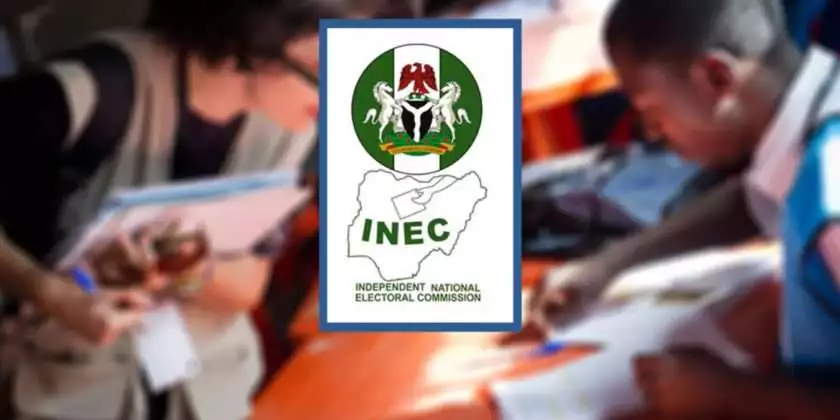One of the Civil Rights Organizations, that monitored the just concluded General Elections in Nigeria has observed that the outcome has led to decreased trust in the Independent National Electoral Commission, (INEC).
The Centre For Democratic Development, (CDD) also noted that violence and vote buying blighted the 2023 polls.
According to report signed by Idayat Hassan, a Director the body released on the elections, violence marred process in 10.8 percent of observed polling units and how political actors circulate suppression videos online to deter voting.
It envisaged several post-election litigations which may likely, lead to judicially declared poll winners.
CDD Election Analysis Centre (EAC) stated that it has already started an inquest to help stakeholders understand how the process played out to produce the emerging outcomes.
It states that “The pro-democracy think tank, which deployed observers to keep a close watch on the process has provided insights deduced from the treasure trove of data it collected during the polls.”
Briefing journalists and election stakeholders during the post-election press conference, Chairman of the CDD, EAC, Prof Adele Jinadu and Director, Idayat Hassan expressed concerns that the improved conduct of the governorship and houses of assembly elections by the INEC has been undermined by the combination of violence, vote buying, online and offline intimidation of voters, disinformation and decreased citizens trust in INEC.
The group stressed that despite INEC’s improved performance during these elections, the perceived questionable credibility of the conduct of presidential and National Assembly polls in the minds of many voters has shaped how Nigerians viewed the 18 March process and their engagement in it.
“Diminished trust in INEC as an institution will shape wider perceptions when it comes to the acceptance of the results returned, particularly in races where a narrow margin of victory is recorded or where presidential results are not replicated at the sub-national level.”
CDD in the post-election analysis also put the spotlight on the mind boggling violence, which affected the elections.
It further pointed out that voter suppression, voter intimidation and the destruction or theft of election materials predominantly by political party agents and politically aligned thugs was recorded across all six geopolitical zones.
It said: “10.8% of observed polling units recorded violence and/or fighting this was most pronounced in the northwest (19.9%) and south-south (11.6%) geopolitical zones with Bayelsa and Zamfara the two states with the most incidents recorded by our observers.”
CDD similarly drew attention to the threat or actual unleashing of violence, which manifested in the use of online and offline tactics to scare off or drive away voters from the polls.
The group revealed that political actors deployed violence, not only offline but also online through the use of identity to drive misinformation and disinformation on social media.
The analysis went on to state that in some polling units, the violence was unleased to intimidate, suppress and destroy election materials.
These disruptive activities, the group said caused a multiplier effect, which further led to the reduction of voters’ appetite to cast their ballots.
“In the first six hours of polls being open on 18 March CDD’s war room team came across a flurry of voter intimidation videos, particularly from Lagos state where it was ensconced in rhetoric about belonging and ethnic identity, an illustration of the ways that voter intimidation took place both online, as well as offline.”
On the specific actors responsible for the violence, which affected the elections, CDD listed them as non-state actors, political thugs and political party agents.
It said the objective of these groups was to disrupt election processes with violence.
“Victims of this violence were first and foremost voters, some of whom were denied the right to exercise their franchise as a result of polling units cancelling results or having their ballot boxes snatched.
“Even though some efforts were made, where possible, to hold polls the following day for example. But there were also attacks directed at, or threats made toward, ad-hoc INEC staff with one shot in Cross River and more than ten kidnapped after voting in Imo state; journalists reporting on the election in Lagos, Rivers and Ogun, domestic election observers and other party agents.
“Violence also targeted BVAS in order to disrupt the process and ensure the cancellation of results, with notable incidents taking place in Warri South West LGA, Delta and Ezza North LGA, Ebonyi state.”
On the significance of the kind of voting witnessed during the elections, CDD said the results would provide momentum to agitators for more party platforms alternatives to the dominant APC and PDP.
For the think tank, the success of candidates who have left the party and were able to gain political influence could encourage more splintering and eventual balkanization of the major parties.
“The performance of elected governors and officials during the coming term will play a part in maintaining this momentum.”
Among other issues, including voter turnout and vote buying, CDD also weighed in on implications of the anomalies witnessed during the polls for Nigeria’s democracy and development.
Discover more from The Source
Subscribe to get the latest posts sent to your email.








